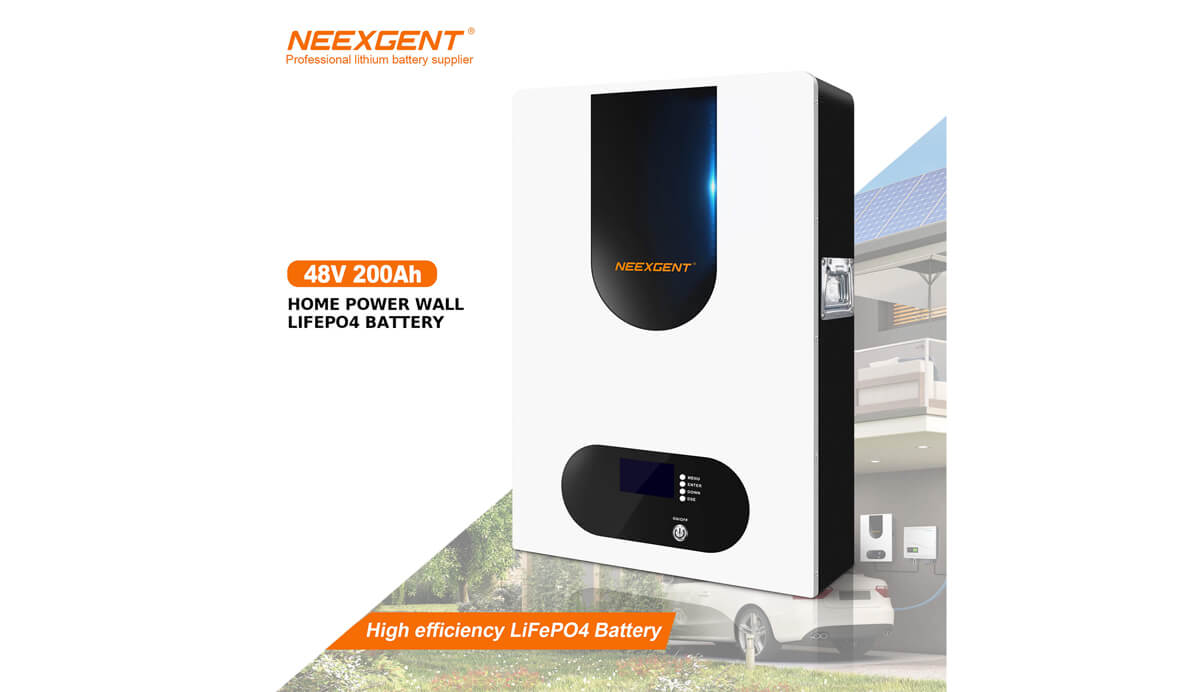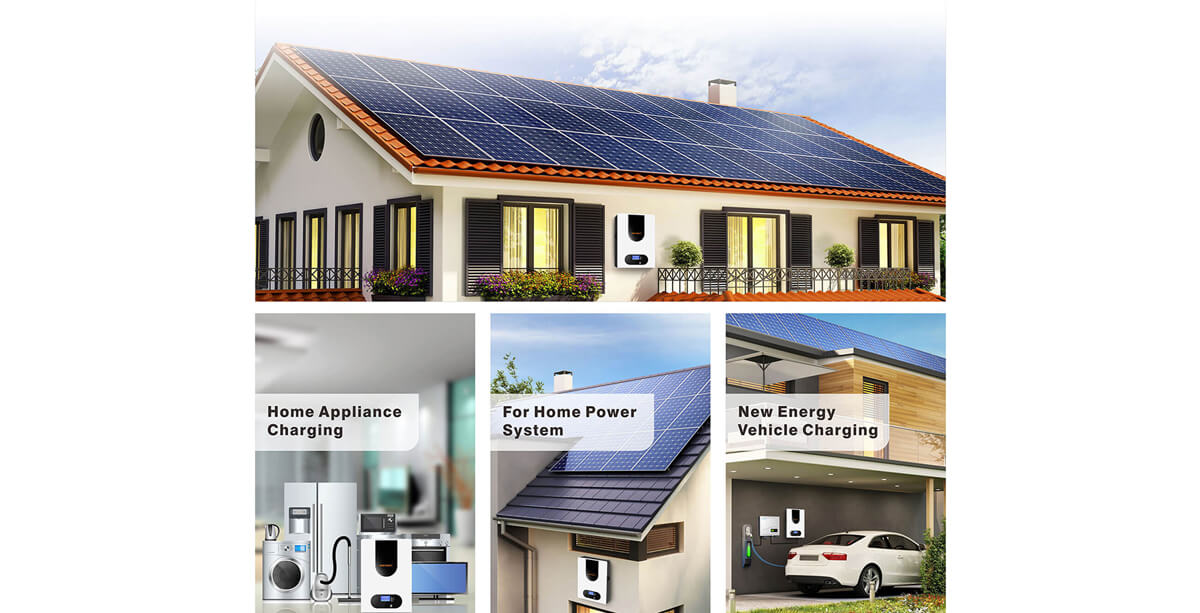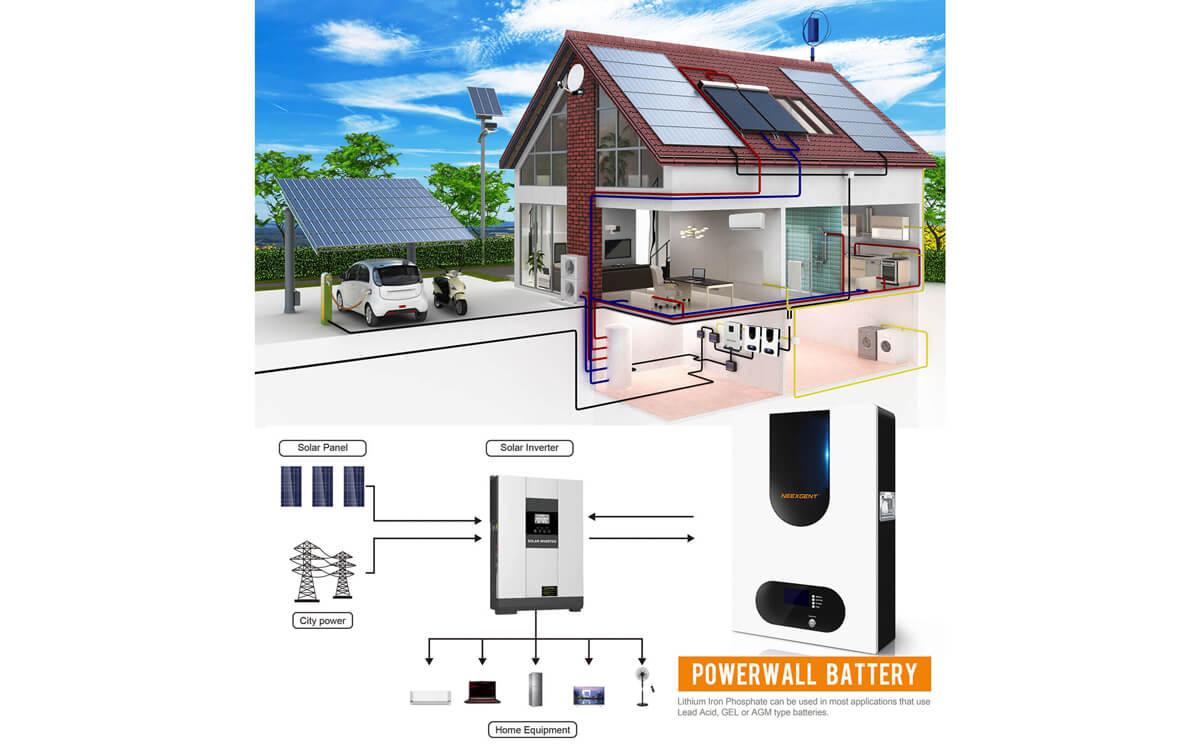In recent years, the global push toward renewable energy sources has gained significant momentum, with countries striving to reduce their dependence on fossil fuels and mitigate the impacts of climate change. As one of the frontrunners in the renewable energy transition, Germany has been at the forefront of implementing innovative solutions to address the intermittent nature of renewable energy generation. One such solution gaining traction in the country is the use of wall-mounted batteries. In this article, we will explore how Germany is utilizing wall-mounted batteries to revolutionize energy storage and pave the way for a more sustainable future.

NEEXGENT 10kw Powerwall Battery
1. Germany's Transition to Renewable Energy:
Germany's commitment to renewable energy is not a recent development. The country has been investing in renewable energy infrastructure for decades, with a particular emphasis on wind and solar power. This substantial investment has resulted in a significant increase in renewable energy generation, but it has also presented new challenges. Unlike traditional fossil fuel power plants, renewable energy sources are intermittent and heavily reliant on weather conditions. This intermittency creates a need for efficient energy storage systems to balance supply and demand.

2. An Innovative Energy Storage Solution:
Wall-mounted batteries, also known as home energy storage systems, are compact units that store excess electricity generated by solar panels or other renewable energy sources. These batteries allow homeowners to store surplus energy during times of high generation and use it when demand exceeds supply or when renewable energy generation is low. Germany has recognized the potential of wall-mounted batteries as a means to achieve energy independence, reduce reliance on the grid, and maximize the utilization of clean energy sources.

3. Integration into the Energy Ecosystem:
Germany has been actively promoting the integration of wall-mounted batteries into its energy ecosystem through various incentives and policies. For instance, the German government offers subsidies and financial incentives to homeowners who install battery storage systems, making them more accessible and affordable. Additionally, the country has implemented a feed-in tariff system, where homeowners can sell excess electricity back to the grid, further incentivizing the adoption of wall-mounted batteries.

4. Benefits and Impacts:
The utilization of wall-mounted batteries in Germany brings several benefits and impacts that contribute to a more sustainable energy landscape:
- Energy Independence: By storing excess renewable energy, homeowners can reduce their dependence on the traditional power grid, enhancing energy independence and resilience.
- Load Shifting and Peak Demand Reduction: Wall-mounted batteries enable homeowners to shift their energy usage to periods of lower demand, reducing the strain on the grid during peak times and potentially lowering electricity costs.
- Grid Stabilization: The integration of wall-mounted batteries into the energy system helps to stabilize the grid by balancing supply and demand fluctuations. This contributes to the overall reliability and efficiency of the electricity network.
- Increased Renewable Energy Utilization: Wall-mounted batteries maximize the utilization of renewable energy sources by storing excess energy that would otherwise go to waste during times of low demand or high generation.
- Carbon Emission Reduction: By facilitating the use of stored renewable energy, wall-mounted batteries help to reduce carbon emissions, supporting Germany's climate goals and contributing to global efforts to combat climate change.
5. Challenges and Future Outlook:
While the adoption of wall-mounted batteries in Germany has been promising, there are still challenges to overcome. The cost of these systems, although decreasing over time, remains a significant barrier for many homeowners. Additionally, the integration and management of a vast number of decentralized energy storage systems present technical and logistical challenges.
Looking ahead, Germany aims to continue its transition toward a more sustainable energy landscape by further integrating wall-mounted batteries into its energy system. Continued research and development efforts are focused on improving battery technologies, reducing costs, and developing smart grid solutions to enable seamless integration and optimization of decentralized energy storage.
Germany's utilization of wall-mounted batteries represents a groundbreaking step toward a more sustainable and resilient energy future. By harnessing the potential of these home energy storage systems, Germany is addressing the challenges posed by intermittent renewable energy sources while promoting energy independence, grid stability, and increased utilization of clean energy.
The positive impacts of wall-mounted batteries extend beyond the individual homeowners who install them. As more households adopt these systems, the collective effect contributes to a more reliable and efficient electricity grid. This, in turn, reduces the need for fossil fuel-based power plants and lowers carbon emissions, aligning with Germany's ambitious climate targets and fostering global efforts to combat climate change.
To overcome the challenges associated with the widespread adoption of wall-mounted batteries, continued collaboration between policymakers, industry leaders, and researchers is crucial. Efforts should focus on driving down costs, improving battery efficiency and lifespan, and developing advanced grid management technologies. By doing so, Germany can create an environment where wall-mounted batteries become an accessible and integral part of the energy infrastructure.
Germany's success in utilizing wall-mounted batteries can serve as a valuable lesson for other countries seeking to transition to renewable energy. By studying Germany's policies, incentives, and integration strategies, nations can learn from its experiences and replicate its achievements in their own energy systems.
Germany's strategic use of wall-mounted batteries is revolutionizing the energy storage landscape. These systems offer a viable solution to address the intermittent nature of renewable energy sources, promoting energy independence, grid stability, and increased utilization of clean power. While challenges remain, Germany's commitment to innovation and sustainability positions it as a global leader in the renewable energy transition. Through ongoing efforts and collaboration, the widespread adoption of wall-mounted batteries can pave the way for a more sustainable future, not only in Germany but also around the world.
The integration of wall-mounted batteries into Germany's energy system has sparked a wave of technological advancements and economic opportunities. The increased demand for battery storage has stimulated research and development in battery technologies, leading to improved efficiency, longer lifespans, and reduced costs. This progress benefits not only homeowners but also the broader energy industry and the economy as a whole.
The deployment of wall-mounted batteries has also created a burgeoning market for energy storage solutions, fostering innovation and competition among manufacturers and service providers. This competition has resulted in a more diverse range of products, offering consumers a variety of options to choose from based on their specific needs and preferences. The growth of the energy storage sector has also generated employment opportunities, contributing to job creation and economic growth.

The use of wall-mounted batteries aligns with Germany's broader energy transition goals, which include a shift toward a decentralized energy system. By empowering homeowners to generate, store, and manage their energy, these batteries facilitate the transition from a traditional centralized energy grid to a more distributed and resilient model. This transition not only reduces dependence on large-scale power plants but also empowers individuals and communities to actively participate in the energy transition, fostering a sense of ownership and environmental responsibility.
Germany's commitment to renewable energy and the effective utilization of wall-mounted batteries have not gone unnoticed by the international community. The country has become a global benchmark for successful energy storage integration, inspiring other nations to follow suit. As countries strive to reduce greenhouse gas emissions and accelerate the deployment of renewable energy, Germany's experiences and best practices in using wall-mounted batteries serve as a valuable reference for policymakers, industry stakeholders, and energy experts worldwide.
Germany's strategic deployment of wall-mounted batteries represents a significant step toward revolutionizing energy storage and achieving a sustainable energy future. Through incentives, policies, and technological advancements, Germany has successfully integrated these batteries into its energy ecosystem, reaping benefits such as energy independence, grid stability, and increased renewable energy utilization. As the country continues to innovate and refine its approach, the lessons learned from Germany's experience can guide other nations in their pursuit of a clean and reliable energy system. By harnessing the potential of wall-mounted batteries, we can accelerate the global transition to renewable energy and combat climate change more effectively.










